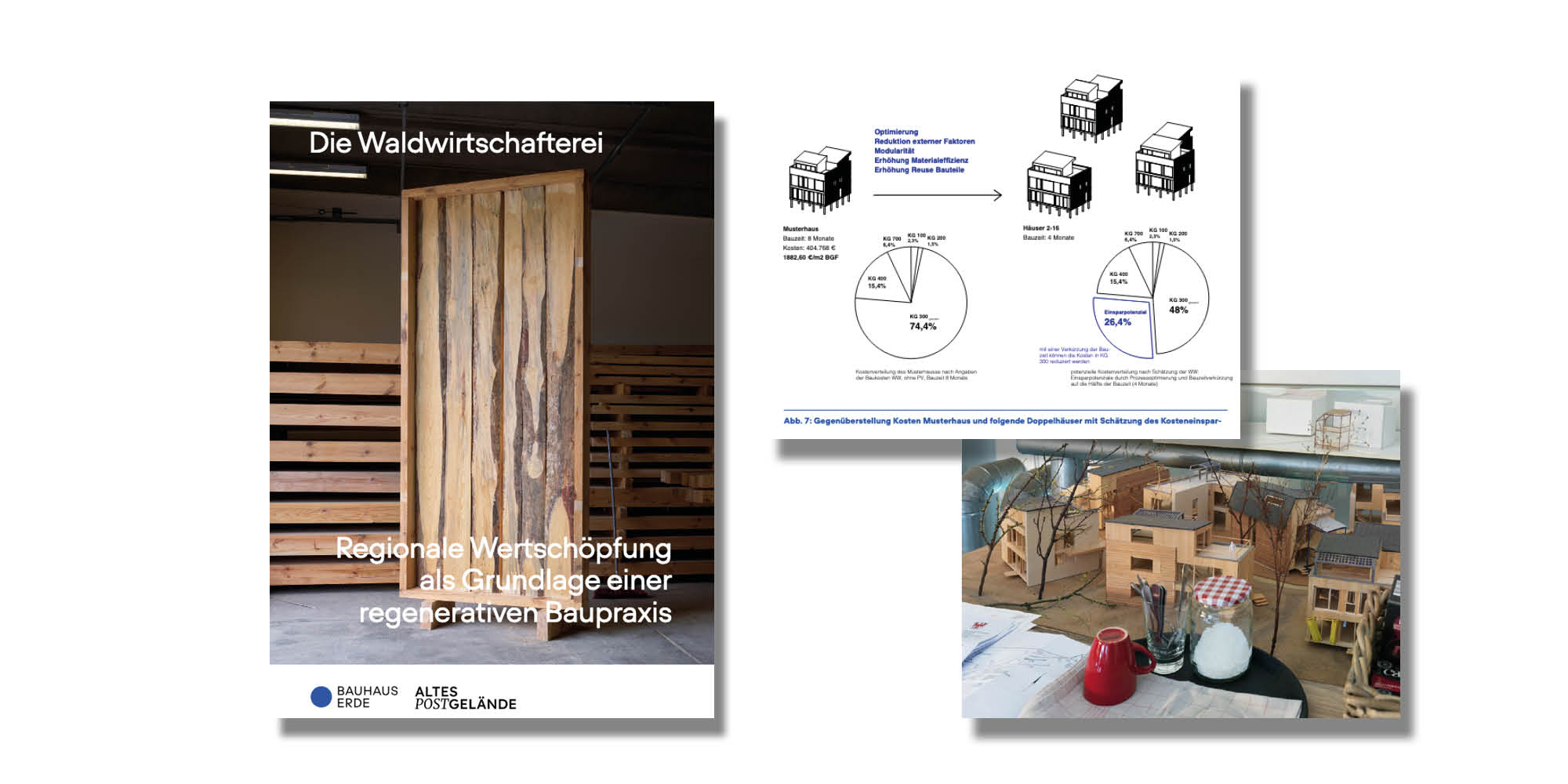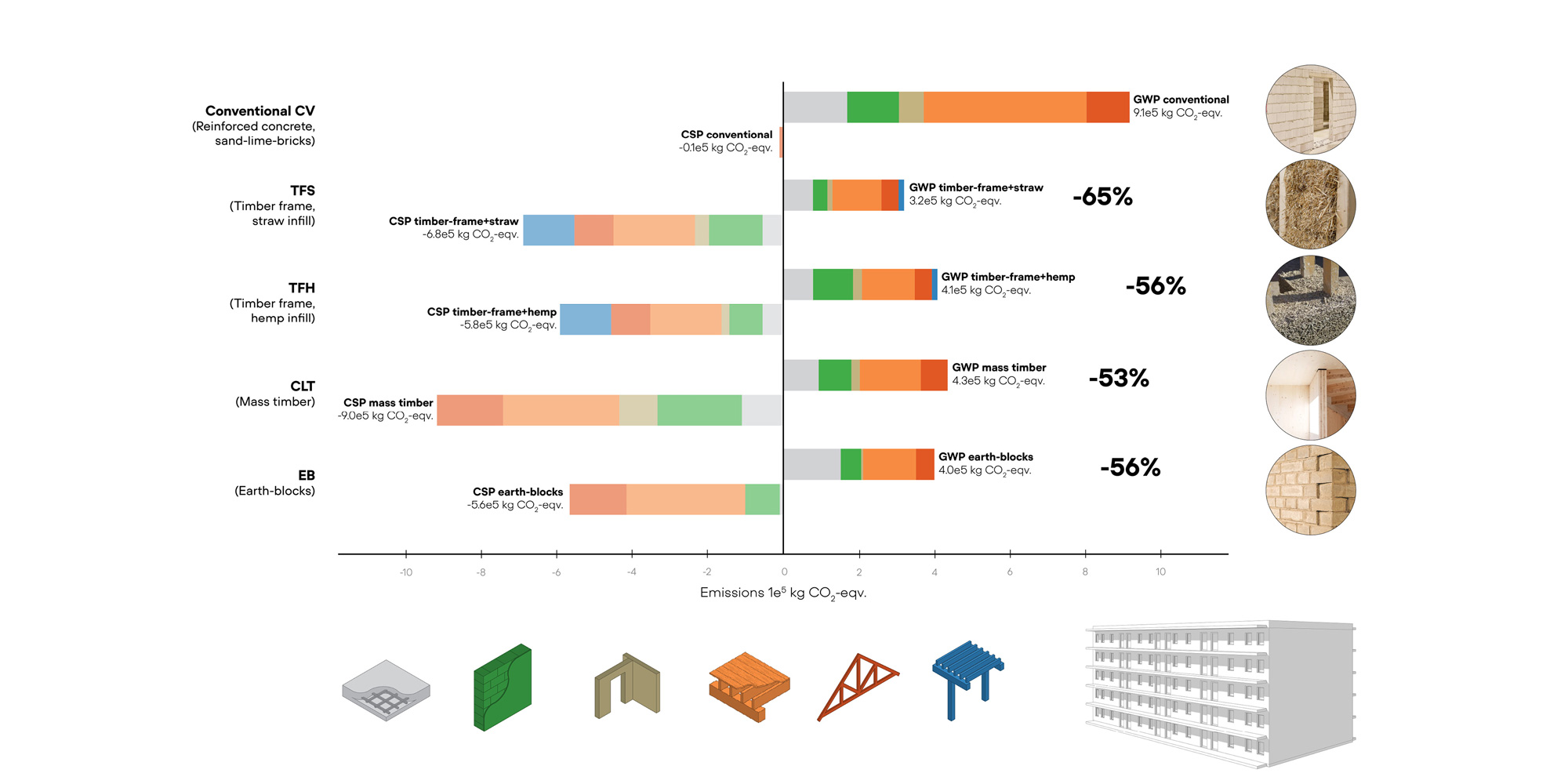
group picture of the Bhutan Team
All articles
The ReBuilt Exhibition: Exploring Nature-Based Construction in Bhutan
Date
29/4/2024
Read time
0
minutes

On March 21, Bauhaus Earth opened its new ReBuilt exhibition in Thimphu, Bhutan. The exhibition explores the use of regenerative, circular, and bio-based building materials from local forests.
The Kingdom of Bhutan has become famous for being the “happiest country in the world”, and for opting to measure national progress by Gross National Happiness (GNH) instead of Gross Domestic Product (GDP). A lesser-known fact is that Bhutan is also the “greenest country in the world”. It was the first country to be recognised as carbon-negative, and today captures about three times as much CO2 as it emits.
The secret to Bhutan’s climate success are its forests. At 70 per cent forest cover, the country is one of the most forested in the world. While there is an active logging industry, the country is committed to reforestation and maintaining the health of its forest: the country has banned logging exports and constitutionally ensured that at least 60 per cent of the country will always remain forested.

Charting the future of Bhutan’s cities and forests
Despite the country’s admirable carbon sequestration through its forests, the building sector of Bhutan, as in the rest of the world, has become reliant on mineral-based, carbon-intensive, and non-renewable materials in recent decades. Cities such as Paro and Thimphu are increasing in size and population and risk urban sprawl. In order to cope with population growth and increasing demand for housing and infrastructure, the country must stay vigilant in managing the relationship between their cities, forests, and people.
You can read our international policy guidelines for securing the future of our forests and cities here.
To aid in charting future scenarios for the built environment in Bhutan, Bauhaus Earth, GOA Architecture, ARUP, and local partners have been exploring the potential of mass timber, forest waste products, fast-growing bio-based materials, and recycled materials. Since 2022, Bhutan has been a partner in our Transformation Pathways Towards a Regenerative Built Environment (ReBuilt) project. The project connects and collaborates with four partner city-regions (Paro-Thimphu, Bhutan, along with Berlin-Brandenburg, Germany, Bali-Denpasar, Indonesia, and Cape Town-Western Cape, South Africa) to explore the opportunities and challenges for regenerative building across diverse economic, social, and ecological contexts.

The ReBuilt exhibition in Thimphu, Bhutan
In March, members of the ReBuilt team visited Bhutan to speak with our partners, see forest management practices in action, learn about vernacular architecture and materials, and open a new exhibition in our Transformation Lab in Kaja Throm, Thimphu. The collaborative exhibition “ReBuilt: Exploring Nature-Based Construction in Bhutan” demonstrates the use of available natural materials such as wood, bamboo, sawdust, and hemp in construction. It gives impressions of all scales of a regenerative built environment in the Bhutanese context, from the raw materials all the way to a study of a mass timber building. As part of the exhibition opening, Bauhaus Earth and our partners held a workshop with stakeholders from the construction sector in Bhutan.
This exhibition represented a significant milestone in bringing our work to the public in Bhutan. After a promising first round of results and positive feedback from the community, the ReBuilt team will continue to explore the possible implementation of these materials and practices.
We thank everyone who has been part of the research and implementation of this exhibition. Our ongoing work in Bhutan is a collaboration with the Ministry of Infrastructure and Transport, Department of Human Settlement. The ReBuilt project is funded by the German Federal Ministry for the Environment, Nature Conservation, Nuclear Safety, and Consumer Protection (BMUV).


The ReBuilt exhibition in Bhutan is also mentioned in a video from NOS, a public broadcasting organisation in the Netherlands. Tino Imsirovic talks about the necessity of transforming cities from carbon emitters to carbon sinks. For more infos, visit the NOS Website.

Press Gallery
Partners

414films%20(3).jpeg)
-web-(c)-414films.jpg)

